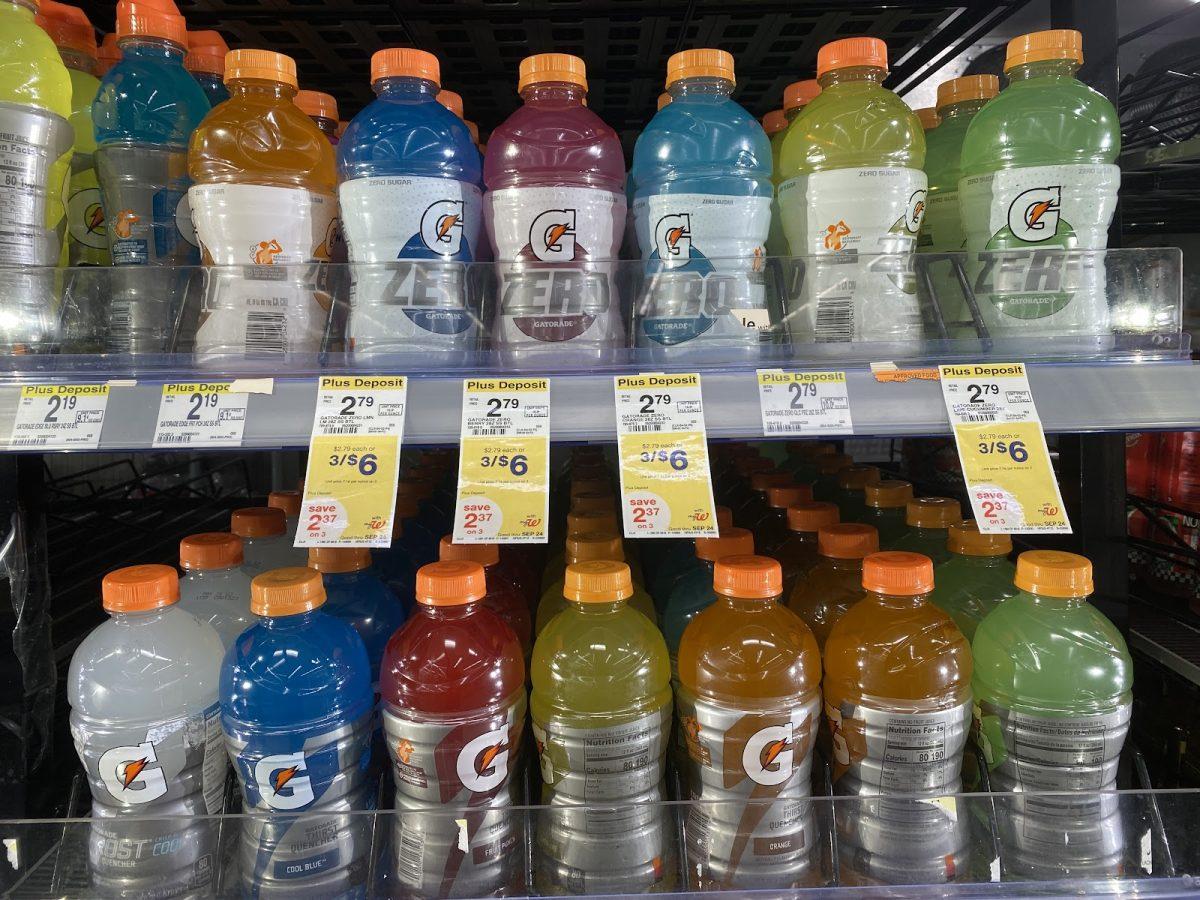As an athlete in this day and age, it can be hard to find the perfect drink and easy to be misinformed about what they actually do. As more and more drinks and products are released, it can be hard to keep up. In order to choose the best drink for you, it is important to consider both the positive and negative effects of both sports and energy drinks, their differences, and how they can impact athletic performance and overall health.
Sports drinks, also commonly known as electrolyte drinks, are used as a common alternative to water, and are frequently used by athletes. Some well known examples are Gatorade, Powerade and Bodyarmor, which are all popular amongst the athletic community. They come in a wide range of flavors, and are packed with carbohydrates, potassium, sodium, sugar and sometimes vitamins. Their purpose is to fuel athletes with electrolytes and nutrients that are lost during activity, helping athletes continue to perform at high levels for prolonged periods of time. Gerilyn Armijo, Athletic Trainer at Franklin High School, says, “[Sports drinks] are designed to help sustain your body throughout an activity… it’s really important to have those carbs and sugars because your body needs those to grow muscle.” The carbohydrates in sports drinks help sustain muscle energy, which helps athletes not only stay energized but also stay healthy.
But what is the difference between sports drinks and energy drinks? Energy and sports drinks share many cosmetic similarities, but are actually made from very different ingredients. Unlike sports drinks, energy drinks are filled with caffeine, added sugars, and many artificial additives. No different from a sugary coffee, energy drinks provide a short-lived burst of energy that can result in what some might say, ‘a crash’ after activity, giving little-to-no nutritional value to the body. On the topic of energy drinks, Armijo explains, “People should really be staying away from them,” adding that “the stuff they put in there is super hard to metabolize, as an athlete it isn’t good for you but as someone who isn’t running it off, it can put even more stress on your body.” Despite the short-term benefits, energy drinks have many negative side effects, including elevated heart rate, increased blood pressure, heightened anxiety, restlessness, and trouble sleeping. Senior Cal Birmingham, Varsity soccer player at Franklin explains, “I personally don’t consume energy drinks because of all the added caffeine and sugar in them. I prefer drinks like Powerade Lite and Liquid IV.”
Although sports drinks can be a great way to add extra nutrients into your diet, they should not be relied upon exclusively or used to replace water. In fact it should be noted that Gatorade contains 36 grams of sugar, only slightly less than your average soda “If you ate a well balanced diet, proper carbs, proper protein, proper fiber, proper fats, you wouldn’t need those [supplements] at all,” Armijo says. Along with staying hydrated, it’s important to keep a well balanced diet filled with calcium, iron, potassium, and fiber, along with key vitamins, such as A, C, and E. Lastly, sleep plays an essential role in an athlete’s performance, The Sleep Foundation states that, “you should be getting between 8 and 10 hours of sleep every night [but] for student athletes in particular, research suggests it’s better to get at least 9 to 10 hours.” Armijo comments, “But in reality most teenagers don’t get the sleep they need, let alone student athletes.” When not getting enough sleep, not eating a proper meal, or not hydrating enough, it can not only be hard on your brain, but also on your body.
Ultimately athletes should not depend on sports drinks as their only source of hydration; it’s important to keep a healthy balance between the sports drinks and water. Although they provide a quick energy boost, the negative effects of energy drinks greatly outweigh the benefits, and should be avoided as much as possible.


































